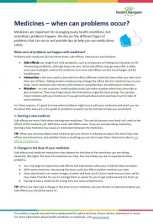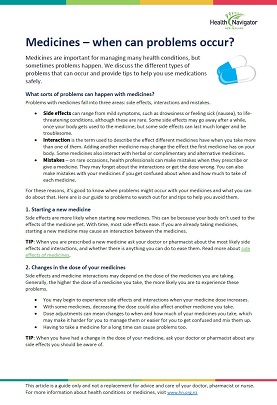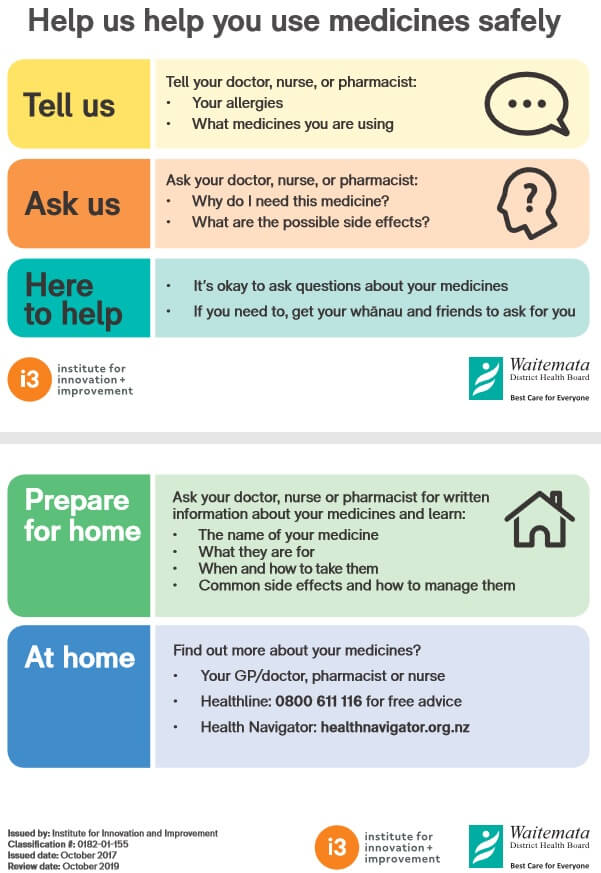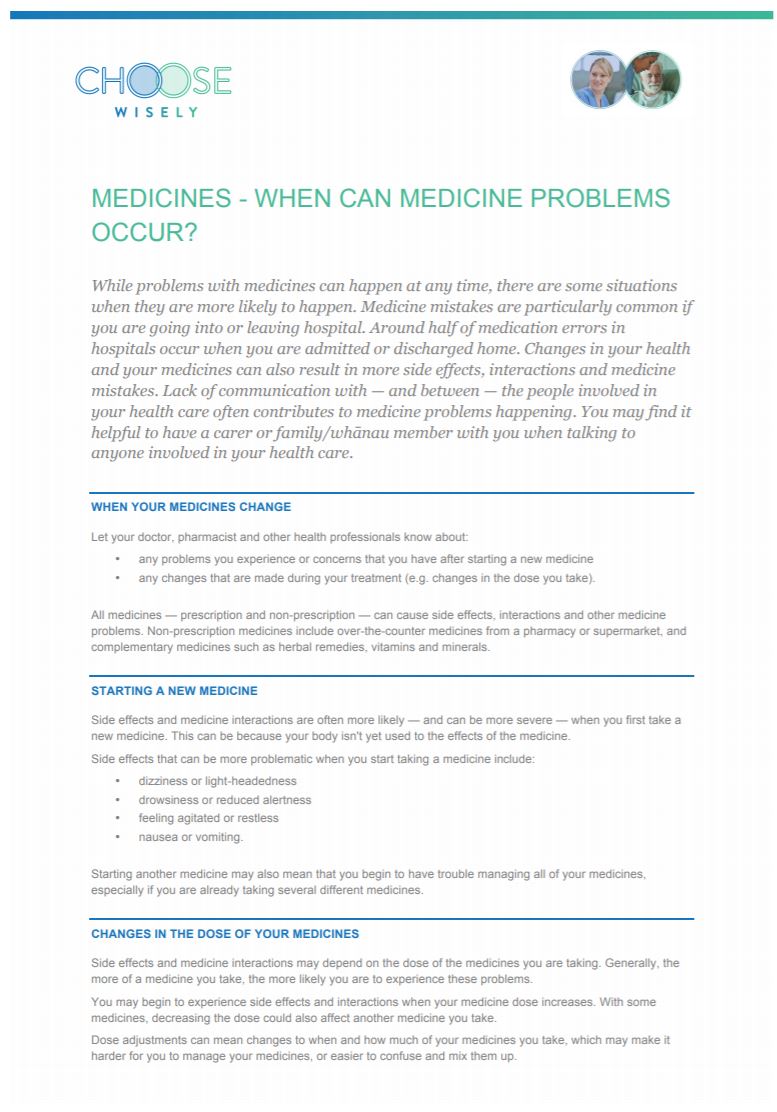Problems with medicines fall are usually because of side effects, interactions and mistakes.
 [PDF, 191 KB]Side effects from medicines can range from mild symptoms, such as drowsiness or feeling sick (nausea), to life-threatening conditions, although these are rare. Some side effects may go away after a while, once your body gets used to the medicine, but some side effects can last much longer and be troublesome.
[PDF, 191 KB]Side effects from medicines can range from mild symptoms, such as drowsiness or feeling sick (nausea), to life-threatening conditions, although these are rare. Some side effects may go away after a while, once your body gets used to the medicine, but some side effects can last much longer and be troublesome.- Interactions from medicines can range from mild symptoms, such as drowsiness or feeling sick (nausea), to life-threatening conditions, although these are rare. Some side effects may go away after a while, once your body gets used to the medicine, but some side effects can last much longer and be troublesome.
- Mistakes from medicines can range from mild symptoms, such as drowsiness or feeling sick (nausea), to life-threatening conditions, although these are rare. Some side effects may go away after a while, once your body gets used to the medicine, but some side effects can last much longer and be troublesome
It’s good to know what you can do about this. Here is our guide to help you avoid these mistakes.
Image credit: 123rf









